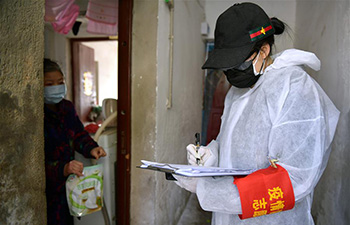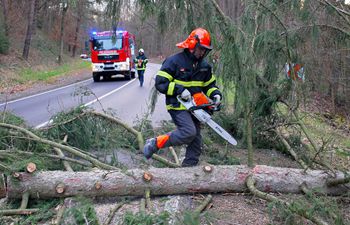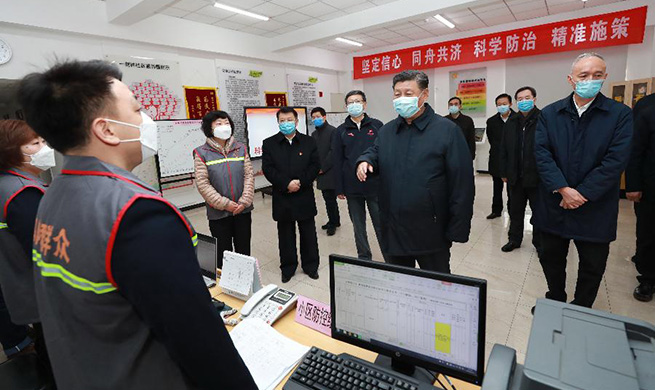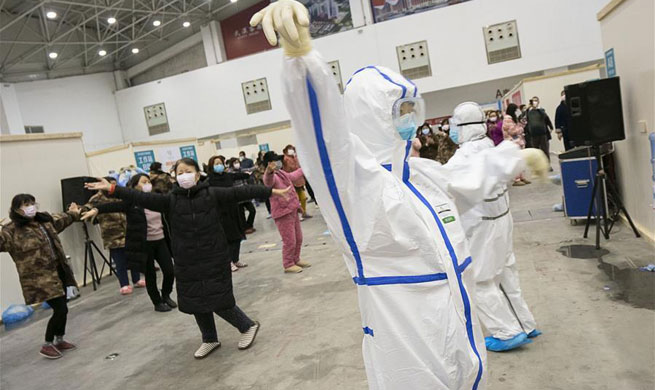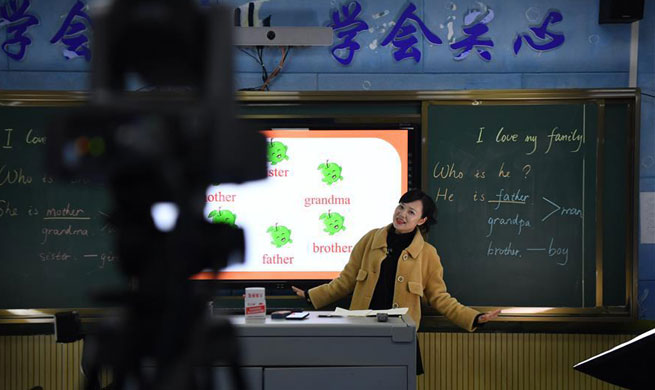WASHINGTON, Feb. 10 (Xinhua) -- There is a strong strategic rationale that the Trump administration should extend the New Strategic Arms Reduction Treaty (New START) with Russia, an expert said.
Frank Rose, a senior fellow at the Brookings Institution, made the remarks in a recent interview with Xinhua when the critical nuclear arms control deal started the one-year countdown to expiration.
New START verifiably limits each country to 1,550 deployed nuclear warheads and 700 deployed strategic delivery systems. If the treaty fails to be extended before next February, the nuclear arsenals of the United States and Russia will be unconstrained for the first time in decades.
The onsite verification and inspection regime of New START provides the United States insights into Russian strategic nuclear forces and allows the United States to maintain an effective deterrent, said Rose.
The ramification of the treaty almost a decade ago was also closely connected with the U.S. strategic modernization program. "New START helped pave the way for bipartisan support for the strategic modernization, the two things are working together," Rose noted.
"But what I would say is that bipartisan consensus is very fragile and if you start moving pieces of that consensus, it's going to be very hard to put them back together again," the arms control expert cautioned.
Rose said that New START also played a role in maintaining the cohesion of the U.S. alliance with the North Atlantic Treaty Organization (NATO). Given the Trump administration's style of managing relationships with allies, a decision not to extend New START would likely lead to belief that the Trump administration's stewardship of these policies may increase threats to Europe, he said.
Russia has indicated a willingness to extend the treaty unconditionally. The Trump administration, however, has expressed doubts and has yet to officially reply.
Rose, who served as assistant secretary of state for arms control, verification, and compliance in the Obama administration, indicated that it is hard to predict if the Trump administration will save the treaty ultimately.
Critics of New START said the treaty has failed to address Russia's development of new strategic systems, the emerging technology in outer space and cyber space, as well as the changing international environment.
Rose acknowledged that those concerns are valid and important while highlighting that the extension precisely provides time to work through these tough issues.
The global arms control regime is facing a critical moment. After years of accusation game, Washington and Moscow successively abandoned the Intermediate-Range Nuclear Forces (INF) Treaty last August, leaving New START the final linchpin of U.S.-Russia nuclear arms control.

